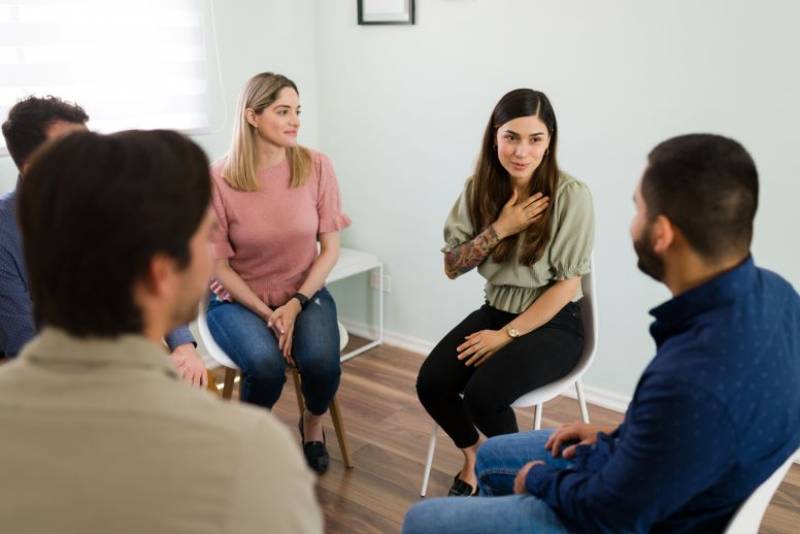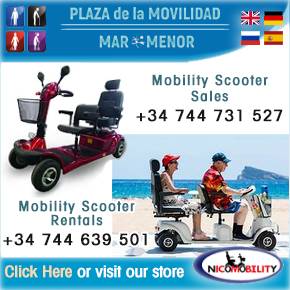- Region
- Águilas
- Alhama de Murcia
- Jumilla
- Lorca
- Los Alcázares
- Mazarrón
- San Javier
-
ALL AREAS & TOWNS
- AREAS
- SOUTH WEST
- MAR MENOR
- MURCIA CITY & CENTRAL
- NORTH & NORTH WEST
- TOWNS
- Abanilla
- Abarán
- Aguilas
- Alamillo
- Alcantarilla
- Aledo
- Alhama de Murcia
- Archena
- Balsicas
- Blanca
- Bolnuevo
- Bullas
- Cañadas del Romero
- Cabo de Palos
- Calasparra
- Camping Bolnuevo
- Campo De Ricote
- Camposol
- Canada De La Lena
- Caravaca de la Cruz
- Cartagena
- Cehegin
- Ceuti
- Cieza
- Condado de Alhama
- Corvera
- Costa Cálida
- Cuevas De Almanzora
- Cuevas de Reyllo
- El Carmoli
- El Mojon
- El Molino (Puerto Lumbreras)
- El Pareton / Cantareros
- El Raso
- El Valle Golf Resort
- Fortuna
- Fuente Alamo
- Hacienda del Alamo Golf Resort
- Hacienda Riquelme Golf Resort
- Isla Plana
- Islas Menores & Mar de Cristal
- Jumilla
- La Azohia
- La Charca
- La Manga Club
- La Manga del Mar Menor
- La Pinilla
- La Puebla
- La Torre
- La Torre Golf Resort
- La Unión
- Las Palas
- Las Ramblas
- Las Ramblas Golf
- Las Torres de Cotillas
- Leiva
- Librilla
- Lo Pagan
- Lo Santiago
- Lorca
- Lorquí
- Los Alcázares
- Los Balcones
- Los Belones
- Los Canovas
- Los Nietos
- Los Perez (Tallante)
- Los Urrutias
- Los Ventorrillos
- Mar De Cristal
- Mar Menor
- Mar Menor Golf Resort
- Mazarrón
- Mazarrón Country Club
- Molina de Segura
- Moratalla
- Mula
- Murcia City
- Murcia Property
- Pareton
- Peraleja Golf Resort
- Perin
- Pilar de la Horadada
- Pinar de Campoverde
- Pinoso
- Playa Honda
- Playa Honda / Playa Paraíso
- Pliego
- Portmán
- Pozo Estrecho
- Puerto de Mazarrón
- Puerto Lumbreras
- Puntas De Calnegre
- Region of Murcia
- Ricote
- Roda Golf Resort
- Roldan
- Roldan and Lo Ferro
- San Javier
- San Pedro del Pinatar
- Santiago de la Ribera
- Sierra Espuña
- Sucina
- Tallante
- Terrazas de la Torre Golf Resort
- Torre Pacheco
- Totana
- What's On Weekly Bulletin
- Yecla


- EDITIONS:
 Spanish News Today
Spanish News Today
 Alicante Today
Alicante Today
 Andalucia Today
Andalucia Today
article_detail
Date Published: 12/06/2024
Alcohol rehabilitation and help with addiction for expats in Murcia
Rehab for alcohol addiction and mental health help in the Region of Murcia

Addiction is a complex and often misunderstood disorder. Often, those who are struggling with addiction are thought of by others as 'weak' and that development of an addiction in the first place can be blamed solely on the individual in question.
However, addiction affects every individual differently, meaning that it is often misunderstood as a disorder and many people with addiction are categorised into one group, rather than being treated as an individual or unique case.
In turn, this can have serious impacts on an individual's life – including their social relationships, work/school life, everyday activities, and daily life in general.
This is why it is vital that individuals struggling with addiction find help as soon as they can, whether this is in the UK or abroad – help is available for those who need it, no matter where they are currently residing.
Reasons people develop addiction
Addiction is a non-discriminatory disease, meaning that it can affect individuals from all different backgrounds and social statuses – the disease does not discriminate who it affects, and how.
This means that individuals can develop an addiction for a number of different reasons, including stress-related factors, the result of social situations, and as a coping mechanism, for example.
No two people will develop an addiction as a result of exactly the same set of factors, as these factors will differ from person to person in everyday life, not just when it comes to struggling with addiction.
Though many studies state that addiction is a dependent behaviour developed as a result of stress (1), this is not always the case, and stress factors may also be combined with many other factors, making the whole disorder far more complex and requiring further treatment than simply for 'stress'.
Signs you need rehab
If you or someone you know may be struggling with addiction but are not sure when the right time to seek support is, then the answer is – more often than not – as soon as possible.
This is because addiction is a disorder that can rapidly and exponentially worsen if left unrecognised, untreated, and un-cared for.
Without seeking help for a serious addiction, an individual could continue indulging in their addiction i.e., substances, which would only worsen their situation, leading to further issues, especially if they are in a foreign country or have been unable to seek help beforehand.
This is why an individual should seek help for their addiction as soon as they become aware of their situation.
This may include the realisation that the individual is no longer taking part in activities that they used to enjoy, they may begin to withdraw from social or familial situations, and their addiction may begin to have greater and greater impacts on their life.
To learn more about seeking help for addiction, it is important that individuals research the options that are specific to themselves, their location, and their current environment and/or situation.
The importance of seeking professional support through rehab
When an individual begins seeking addiction support and treatment, then it is vital that they go about this in a sensible, practical, and realistic manner.
In most instances, this requires the individual to seek help from reliable sources i.e., drug and alcohol rehabilitation in Spain that is suitable for them and accessed through a reliable source.
This could mean seeking help through local councils in their local area i.e., in Murcia itself, or through the medical system on offer.
Generally, individuals who choose to move away from their home country to live as an expat (someone who migrates to another country) set up healthcare and medical support in their new country and should be generally aware of how to contact these services should they be needed.
Without professional help, individuals may be led into situations that are unhelpful for their situation i.e., unhelpful schemes and programmes lead by untrained individuals, or even scams in which they receive no help but pay great amounts of money.
This happens in all countries, but individuals should always be 100% sure of the company they are seeking support through, this company's interests in helping them, and the reputation of this system.
Getting help for addiction and substance abuse in Spain
There are countless different addiction treatment centres across Spain, including many in areas that those living in Murcia will easily be able to access in terms of location.
This means that individuals in Spain, and in Murcia in general, will be able to research centres and treatment options near to them, without having to worry about moving or travelling long distances.
This is something that many expats may be concerned about, as they often set up in one particular area, and the thought of having to travel long distances or stay away from home for long periods of time can be stressful - something which is not helpful when seeking rehabilitation and support for addiction in general.
As well as countless different online resources directing individuals to residential rehab centres near them, many areas of Spain now offer addiction treatment programmes in general, not just those offered in residential settings.
This makes rehabilitation a far more realistic prospect for many individuals, as the thought of residential rehab – especially for those who may not be struggling as much as others – can be a daunting one.
However, it is vital that all individuals seeking rehabilitation consider residential and long-term care as it is often the most effective when it comes to the long-term treatment and sobriety of an individual (2).
Mental health and rehab in Spain
As well as care for addiction and the process of rehabilitation in general, many facilities in Spain are now offering mental health support and services for those who need it.
Mental health is one of the key factors that contributes to an individual's addiction, meaning that individuals who participate in mental health support and care are more likely to progress well in rehabilitation and maintain sobriety for a longer period of time.
This is because mental health issues often co-occur with addiction, meaning that disorders such as anxiety, depression, bipolar disorder, and schizophrenia are likely to develop, be made worse, or just be present in an individual who is struggling with addiction as well.
Any individual seeking addiction support and treatment should consider mental health support, as well, as this is something that will greatly aid the individual in creating coping mechanisms and teach them how to avoid and manage triggers in their daily life.
Mental healthcare for special groups
In the cases where an individual requires specialised mental health support i.e., in the situation of serious mental health disorders, learning disabilities, or other factors, then this can also be discussed when an individual begins seeking rehabilitation.
All treatment programmes should be flexible to an individual's needs, including the addition or adaptation of different programmes within the treatment as a whole.
By being flexible and being tailored to an individual's needs, requirements, and progress within each rehabilitation course, these individuals are far more likely to make efficient progress, have a positive experience of rehabilitation, and maintain a strong attitude and motivation toward their recovery journey in general.
Residential rehab programmes
As mentioned previously, residential rehab is often one of the most effective treatments when it comes to addiction.
This is because individuals reside in one place, with around-the-clock care and constant monitoring, assessment of progress, and are within a closed environment with little to no distraction.
For comparison, an individual who remains at home while attending rehabilitation treatments may still be subject to the same factors and environment in which they developed their addiction in the first place.
This can be especially damaging to an individual's progress, especially if this begins to affect their motivation to recover and their attitude to their treatment programme in general.
The advantages of private rehab
Within a private rehab centre, individuals can often benefit from:
- 24-hour care and support available
- Medical interventions on hand if necessary
- Emergency support
- Closed and distraction-free environments
- A range of facilities geared toward helping an individual overcome their addiction
- Tailored and unique rehab programmes
- Flexibility in treatment programmes
- Visitation from friends and family
With the factors mentioned above, as well as many other unique benefits offered from different centres across Murcia, Spain, and internationally, it can be argued that residential rehabilitation is often the best choice for individuals looking to overcome their addiction, but there are always exceptions.
This is why this is one of the first choices that an individual looking at entering rehabilitation can make – and it is a decision that should be seriously considered, speaking to medical and psychological professionals in order to ascertain what the best options for individual cases may be.
Insurance for addiction healthcare
When considering medical and mental health support overseas, it can often be considered to be far more expensive than care in the UK, for example.
However, this is not always the case. If an individual holds insurance, for example, then they may not have to pay the complete amount immediately, if at all.
Individuals should always check that their insurance covers drug and alcohol rehabilitation, though, as some policies may be more or less lenient on rehabilitation and drug support in general.
This can be done by checking with the insurance provider directly, or by contacting the service through which the individual receives the care i.e., through their job or career.
If an individual is unsure, then it is always encouraged that they find out sooner rather than later, and especially before entering the type of rehabilitation that they have chosen.
It is better to know these things than to be surprised with a hefty medical bill, especially if the individual in question is trying to recover from addiction, on top of this.
Murcia drug and alcohol treatment centres
As mentioned previously, there are many options for drug and alcohol rehabilitation across Spain, but this also includes different options within Murcia, specifically.
There are many different privately operating referral systems in Murcia itself, but also from the UK, for example.
If an individual has moved from the UK to Murcia, they are still able to access referral systems back in the UK and are not limited to those available in their local area.
In some cases, this may impact the cost of care, but it can often lead to the individual finding the most suitable form of care for them, as well as finding a residential centre or a specific treatment programme that is suitable for them, not just a 'one size fits all' approach that many referral systems may offer.
Why choose a rehab clinic in Spain?
Even if an individual does not reside in Spain, there are many reasons why an individual may choose to attend rehabilitation programmes in this country, regardless.
For example, building on what was mentioned earlier about seeking a new environment, away from distractions and the likes, any individual could consider attending rehabilitation in a foreign country.
Spain may be especially appealing to those struggling with addiction in the UK, for example, as it is still in Europe, relatively close in location, and often provides a warmer climate in some areas.
Another example of why an individual may choose to attend rehabilitation in a country different to their home country may be the need for privacy.
For example, high-profile individuals may not want to be spotted in rehabilitation in their own country or around individuals who may judge them for it, meaning that they seek rehabilitation in an alternative location, often far away from their previous life.
What happens after rehab in Spain?
After attending drug and alcohol rehabilitation in Spain (or anywhere else, for that matter), an individual will often be recommended aftercare – the final stage of rehabilitation that can continue for as long or as short as the individual requires.
During aftercare, an individual can take part in a number of different programmes, each designed to encourage long-term recovery, ongoing independent learning, and a general sense of maintaining different principles and teachings that they may have learnt during rehabilitation.
For example, some individuals choose to continue specific programmes that they began within rehabilitation, but on a far more independent and part-time basis.
For example, individuals often continue therapy long after leaving rehabilitation, purely for the ongoing support, progress tracking, and advice received on their different options going into the future.
Alternatively, an individual may choose to begin an entirely new programme – perhaps something that is specialised to them and their needs (something discovered during rehabilitation, for example) – or to meet with an aftercare or addiction support officer in the long-term.
After leaving care, an individual is never left completely to fend for themselves, and help is available across the country for anyone who needs it.
Getting in touch
To learn more about addiction treatment in Murcia, Spain, or addiction support in general, it is essential that individuals research specific referral systems, treatment programmes available in their local area, and residential centres that may be suitable for them should they feel the need.
Local councils can be a great place to start, but navigating systems like this in a foreign country can be daunting, leading to the need for referral systems such as those that have been described across this page.
Addiction is a serious disorder, so seeking help sooner rather than later is always advised. In emergency situations, always contact professionals to get the help needed as soon as possible.
Sources:
[1] Jacobs, D.F., 1986. A general theory of addictions: A new theoretical model. Journal of gambling behavior, 2(1), pp.15-31.
[2] Harris, A.H., Kivlahan, D., Barnett, P.G. and Finney, J.W., 2012. Longer length of stay is not associated with better outcomes in VHA’s substance abuse residential rehabilitation treatment programs. The Journal of Behavioral Health Services & Research, 39, pp.68-79.
Contact Murcia Today: Editorial 000 000 000 /
Office 000 000 000



















